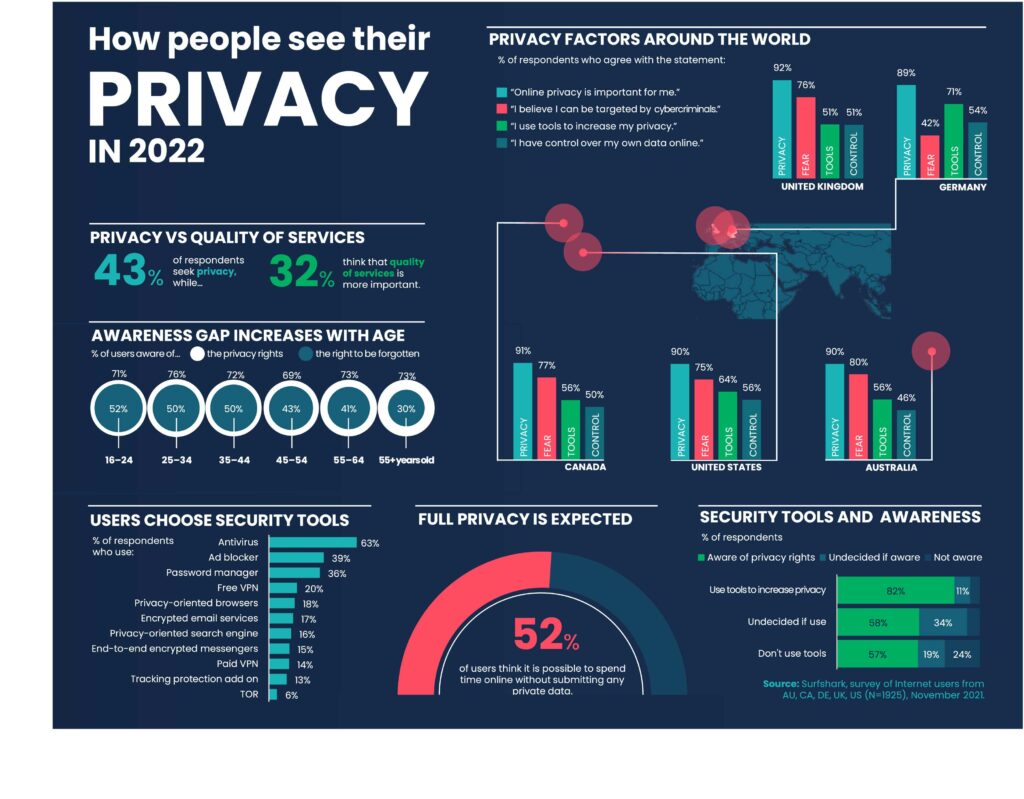How Does A Vpn Protect Your Privacy And Anonymity
A VPN (short for virtual private network) provides security, privacy, and anonymity that we all crave when online. A VPN encrypts your data online and creates a secure network from a public network. A VPN creates an encrypted tunnel from your device (e.g., a computer or a phone) to a destination that you are trying to reach (e.g., YouTube).
Instead of using the VPN to create an encrypted tunnel to mask the web connection already in place, a VPN may automatically encrypt data before serving it to a user.
When connecting to the Internet via A VPN, all of the data traffic is sent via a virtual encrypted tunnel. All of your Internet traffic is sent through an encrypted tunnel, so your data is safe from prying eyes along the way.
Every time you connect to a VPN server, your traffic is encrypted using the protocol of your choice. The VPN software on your computer encrypts your data traffic and sends it (via your Internet service provider) through a secure connection to the desired VPN server. The VPN connection will encrypt your data traffic, making it far harder for hackers and others to intercept and see your private information.
A secure connection also gives a user enhanced anonymity, as the Internet traffic is routed through an external VPN server. VPNs create a secure connection, or a tunnel, to the Internet, with a VPN server acting as a middleman between you and the Internet. By using a different IP address (the one assigned to the desired VPN server), none of your actions on the web are tracked back to you, which allows you to browse the internet in more anonymity.
To surf the Internet securely and anonymously, you will have to follow a few additional privacy measures in addition to using the VPN connection. If you are concerned about your online privacy and security, using a VPN is a great way to keep your data safe. With a Virtual Private Network (VPN), you can keep your information out of the reach of prying eyes and restore some measure of online privacy.
A VPN (Virtual Private Network) helps to safeguard your privacy and anonymity by encrypting all this information and hiding your real IP address. A VPN also encrypts information that you send over the Internet, making it unreadable for anyone who intercepts your traffic. A VPN reroutes your Internet connection, so that your real IP address is hidden, making tracking you across the Internet extremely difficult.
A VPN redirects your internet traffic, disguising where your computer, phone, or other device is located as it makes contact with websites. VPNs are known to protect users privacy by encrypting the computer traffic, and routing encrypted traffic through anonymizing routers, hiding a users identity. VPNs basically encrypt data and render it unreadable to hackers and other entities online.
VPNs mask a users internet protocol (IP) address on a network, so the users online activities are effectively untraceable for hackers and other online entities looking to gather data. A VPN masks your IP address, and without your IP, an attacker cannot target your network with DDoS attacks. Any cyberattack where a hacker needs to know your IP will also be far less likely, as the only IP address that they will be able to see is the one associated with your VPN server.
You also need to keep in mind that since your data is decrypted as soon as it hits the VPN server, this means emails, SMS messages, and other things that are not encrypted with the VPN could be intercepted and read by others. The connection between a VPN server and websites (or web services) does not have this second layer of encryption, meaning any data sent in plaintext could be read by anyone who could eavesdrop on the connection. With the VPN on your device, you have an additional protection, and your private data will be seen only in an unintelligible, scrambled code.
If you use a VPN to encrypt your traffic, no one will be able to intercept it, and thus will be unable to steal data or plant malware on your device. Cookies used to track personal identifiable information will not know your location, and the VPN encrypts data transfers so that your internet service provider cannot monitor them.
While when using a VPN, your internet service provider will not be able to see your Internet traffic, your VPN provider could still potentially be monitoring your browsing activities.
While VPN is a powerful tool to help with your privacy and security, it is just one layer of a stronger defense, blocking malicious users and bots from gaining access to your data. In simple terms, it builds a sort of tunnel, which stops advertisers, cybercriminals, or Internet Service Providers from monitoring, reading, and using your sensitive data. A VPN helps you to remain invisible and out of sight, but does not grant you immunity to online risks such as malware, ransomware, phishing attacks, or even computer viruses.
Encryption can be helpful in many situations – such as when using public WiFi – because it means no one, from your Internet provider, the networks owners, or any hackers, can see any information you are sending through the network. It means that when you are using the Internet when connected, websites will not record your true IP address, your sessions cannot be tracked via the new IP address, and anyone with whom you are sharing files (for example, while torrenting) cannot actually know who you are.
